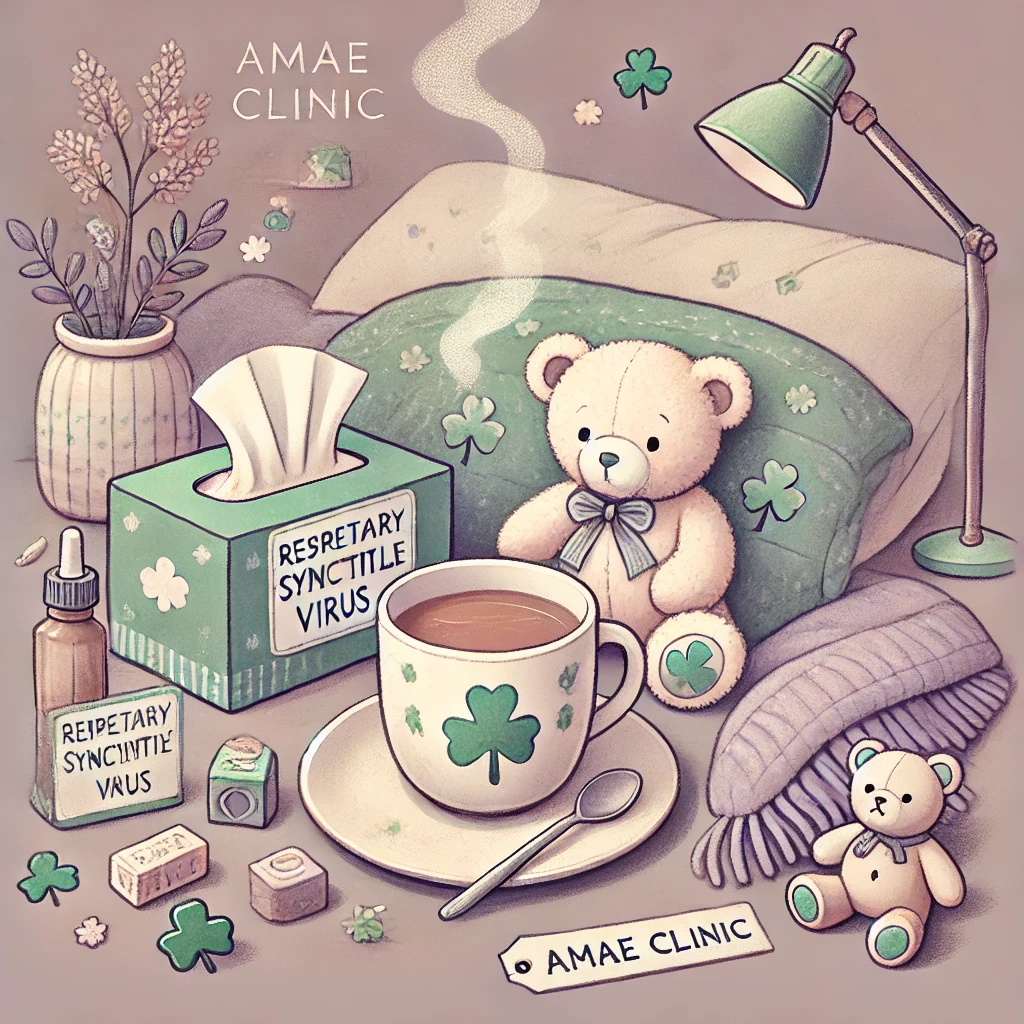
What’s RSV?
RSV, or Respiratory Syncytial Virus, is a common virus that mainly affects children under two but can also impact older adults. It’s particularly common in winter here in Ireland when the cold and damp make it easier for viruses to spread. RSV usually causes mild symptoms in older children and adults but can lead to more serious lung infections in infants and young children, so it’s one to keep an eye on.
Common Symptoms
In young children, RSV can start with symptoms that look like a simple cold but can escalate:
- Runny or stuffy nose
- Cough, which can worsen over time
- Mild fever
- Wheezing or difficulty breathing
- Loss of appetite (little ones may refuse to feed or eat)
Tips to Prevent and Manage RSV This Season
- Wash Those Wee Hands Often (Nigh do lámha!): RSV is easily spread through touch, so encourage regular handwashing, especially for kids coming home from crèche or school.
- Keep Your Distance: Avoid bringing young kids around anyone with a cold, cough, or fever, as RSV spreads fast. Even if Granny’s feeling a bit sniffly, best to keep visits virtual.
- Clean and Disinfect: Wipe down surfaces and wash toys regularly, especially those that kids might put in their mouths.
- Bundle Them Up: Keep little ones warm and snug. The Irish winter can be tough, so scarves, hats, and cozy blankets are must-haves.
Home Remedies and Comfort Measures
- Steam and Humidity: Adding a humidifier to the bedroom or doing a steamy shower can help relieve congestion for easier breathing.
- Fluids and Soups: Keep them hydrated with warm drinks (for older kids) or soups, and if they’re too small for tea, warm milk or water is a good option.
- Nose Wiping with Care: A gentle saline spray or drops can help clear tiny noses, and soft tissues keep skin from getting irritated.
- Rest and Reassurance: Cuddles are great medicine! Keep them calm and cozy to help their bodies fight off the infection.
When to See a Doctor
RSV can turn serious, so if you notice fast breathing, chest retractions (pulling in at the ribs), high fever, or dehydration, it’s time to get in touch with your GP. For babies, especially under six months, don’t wait if symptoms get worse.
Need Some Extra Support?
If your little one is under the weather or you need guidance, a prescription, or a medical certificate, Aufie at AMAE Clinic is here to help. Schedule a consultation, and let’s get them back to their usual, giggling selves!